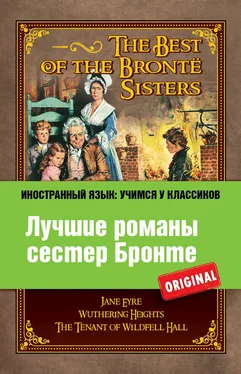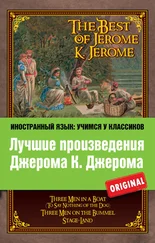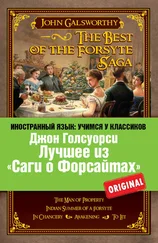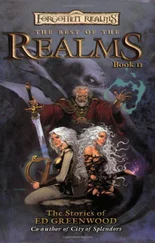negus – kind of mulled wine
Quakerlike – Quakers are members of the Christian group known as the Society of Friends; here: modest and strict.
C’est là ma gouverante. –It’s my governess.
Mais oui, certainement! –Of course she is!
canzonette – a small song ( Italian )
La Ligue des Rats: fable de La Fontaine –“The Rats’ Union,” fable by Jean de La Fontaine
Qu’ avez vous donc? lui dit un de ces rats; parlez! –So, what do you have? says one of the rats. Speak up!
yonder – there ( archaic ). Here and later archaic words are used, such as “bairn” – child, “nought” – nothing, etc.
Tyrian-dyed –purple
Parian –made of white semitranslucent marble quarried at Páros
Hebrew ark – the ark of the Covenant
“ after life’s fitful fever they sleep well” –a quotation from “Macbeth” (Act 3, Scene 2) by William Shakespeare
Mesdames, vous êtes servies! J’ai bien faim, moi! – Ladies, dinner is served! As for me, I’m terribly hungry!
par parenthèse– by the way
viz. –that is
Revenez bientôt, ma bonne amie, ma chère Mdlle. Jeannette. –Come back soon, my good friend, my dear Miss Jane.
It’s a quotation from the poem “Fallen is thy Throne” by Thomas Moore.
“Et cela doit signifier qu’il y aura là dedans un cadeau pour moi, et peut-être pour vous aussi, mademoiselle. Monsieur a parlé de vous: il m’a demandé le nom de ma gouvernante, et si elle n’était pas une petite personne, assez mince et un peu pâle. J’ai dit qu’oui: car c’est vrai, n’est-ce pas, mademoiselle?” – It must mean there is a present for me inside, and maybe for you too, Miss. Monsieur has talked about you: he asked me what’s your name and if you are small, thin and somewhat pale. I said yes, because it’s true, isn’t it, Miss?
“N’est-ce pas, monsieur, qu’il y a un cadeau pour Mademoiselle Eyre dans votre petit coffre?” – Isn’t there a present for Miss Eyre in your small chest?
the men in green – Mr. Rochester refers to Jane as to an imp, a fairy.
the likeness of a kingly crown, the shape which shape had none – from “Paradise Lost” by John Milton (1608–1674) where Raphael describes Death to Adam.
Latmos – Mount Latmus; according to Greek legends, it was the place where the moon goddess Selene first met Endymion, a mortal who became her lover.
petit coffre – a small chest
Ma boîte! ma boîte – My box! My box!
tiens-toi tranquille, enfant; comprends-tu? – Be quiet, child. Do you understand?
Oh ciel! Que c’est beau! – Oh heavens! But it is beautiful!
nonnette – a young nun
India-rubber ball –meaning natural rubber
ditto –the same ( Italian )
et j’y tiens – it matters to me
Medes and Persians –two tribes mentioned in the Bible
Il faut que je l’essaie! et à l’instant même! – I must try it on! Right now!
Est-ce que ma robe va bien? et mes souliers? et mes bas? Tenez, je crois que je vais danser! – My frock, does it suit me? And my shoes? And my stockings? Look, I believe I’m going to dance!
Monsieur, je vous remercie mille fois de votre bonté; C’est comme cela que maman faisait, n’est-ce pas, monsieur? – Monsieur, I thank you thousand times for you generosity. That’s like my mom used to do, isn’t it, Monsieur?
comme cela – like that
taille d’athlète – athletic built
croquant – crunching
porte cochère – gateway
Job’s leviathan broke the spear, the dart, and the habergeon – allusion to the Bible (the Book of Job, 41:26). Here is meant the readiness to overcome any hardships and obstacles.
roué – a scapegrace
beauté mâle – man’s beauty, handsomness
filette – a daughter or a girl
Beulah – from the Bible: a symbolic name of the heavenly Zion, the promised land.
Qu’ avez-vous, mademoiselle? Vos doigts tremblent comme la feuille, et vos joues sont rouges: mais, rouges comme des cerises. – What’s happened, Miss? Your fingers are trembling like a leaf, and your cheeks are red, as red as cherries.
ignis-fatus – “fool’s fire” ( Latin ), dim wandering light appearing over the swamps at night. It is believed to drive travellers from the safe paths.
passées – old-fashioned
Some natural tears she shed – allusion to “Paradise Lost” by John Milton (1608–1674); the original quote is “Some natural tears they dropped.”
Elles changent de toilettes – They change.
Chez maman, quand il y avait du monde, je le suivais partout, au salon et à leurs chambres; souvent je regardais les femmes de chambre coiffer et habiller les dames, et c’était si amusant: comme cela on apprend. – When my mom had guests, I followed them everywhere, in the drawing room and in the bedrooms. I often watched the maids combing and dressing the ladies, and that was real fun; that’s how they learn.
Mais oui, mademoiselle: voilà cinq ou six heures que nous n’avons pas mangé. – Oh yes, Miss; it is really five or six hours since we had some food.
abigails –allusion to the Bible, here: ladies’ maids
et alors quel dommage – well, it’s a pity
Читать дальше
Конец ознакомительного отрывка
Купить книгу












